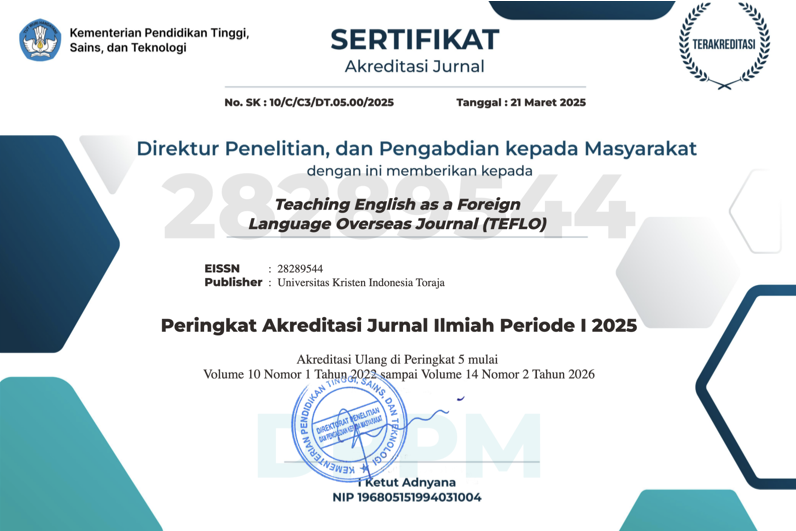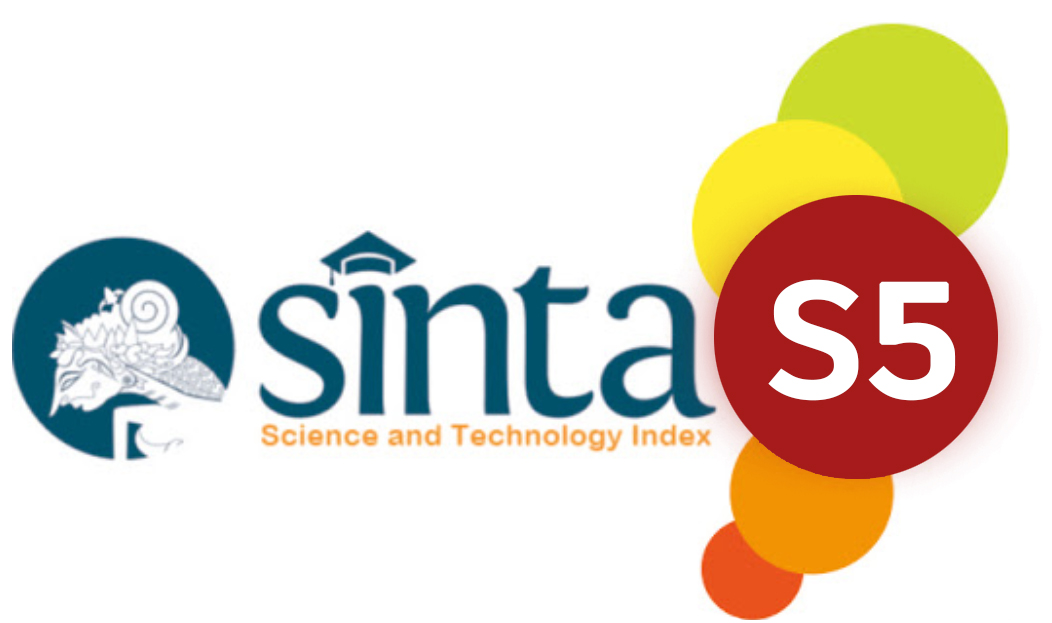MAKING A MATCH GAMES TO IMPROVE STUDENTS’ VOCABULARY
DOI:
https://doi.org/10.47178/2dzbjh26Keywords:
matching games, vocabularyAbstract
The objectives of the research were to examine whether the use of Match Games Improve the students’ vocabulary and to find out the strengths and the weaknesses of Match Games. The researcher was applied pre-experimental design the population is the seven grade students of SMPN 17 Makassar in academic year 2021/2022. The total number of populations is 240 students. The researcher was used total sampling technique. relatively baseline knowledge based on their test examination average scores. The total number of samples was 30 students from class VII-5. In analyzing the numerical data, the writer was used SPSS for windows. After implementing the research, the researcher concludes that the use of Matching Games in teaching English vocabulary enriches the students’ vocabulary; it is proved by the mean score of the students’ posttest. The t-test of the students’ vocabulary achievement in posttest was smaller than ? (0.000 < 0.05). It meant that the H1 of the hypothesis was accepted
References
Akram, 2003. The Problem Faced by the Students of SMU Negeri 1 Sinjai in Mastering Vocabulary. Unpublished Thesis. Makassar: FBS UNM.
Al-Jarf, Reima Sado. 2006. The Effect of Online Grammar Instruction on Low Proficiency EFL College Students’ Achievement. Retrieved February 9th 2013.
Brown, H. Douglas. 2004. Language Assessment. Principles and classroom practices. New York: Pearson Education.
Cahyoko, Angkat Adi.2013. The Effectiveness Of Matching Games To Teach Speaking Skill Viewed From Students’ Creativity . Unpublished Thesis. Surakarta: Universitas Sebelas Maret
Depdiknas. 2005. Petunjuk Teknis Pengembangan Silabus dan Contoh/Model Silabus. Jakarta: Badan Standar Nasional Pendidikan. Jakarta.
Dyah, Sulistiyani.2014. The Effectiveness Of Group-Discussion Using Word Wall To Teach Reading Viewed From Students’ Interest. Unpublished Skripsi. Jakarta: UIN Jakarta.
Finocchiaro, M. and M, Bonomo. 1973. The Foreign Language Learner: a Guide For Teacher. New York: Regent Publishing Company, Inc.
Gay, L.R., Geoffrey E. Mills, and Peter Airasian. 2006. Educational Research: Competencies for Analysis and Application (Eight Edition). Columbus, Ohio: Pearson Merril. Prentice Hall, New Jersey.
Hornby, A.S. 2006. Oxford Advance Learner’s Dictionary of Current English. London: Oxford University Press.
Hornby, A.S. 1995. The Advances Learner’s Dictionary to Current English. Second Edition. London: Oxford University Press.
Ikhsan. 2013. The Implementation of English Macromedia Flash Games Software to Enrich Students’ Vocabulary. Unpublished Thesis. Makassar: PPs UNM.
Jabu, Baso. 2008. English Language Testing. Badan Penerbit UNM
Kim, Lee SU.1995. Creative Games for the Language Class. Forum, Vol 33 No 1, January- March
Masnijuri. 2004. Improving the Students Achievement by Using Multimedia Program as Learning in Teaching English. Unpublished Thesis. Makassar: PPs UNM.
Mulyadi. 2004. Enhancing Students Mastery of English Vocabulary by Using CALL. Thesis. Makassar: State University of Makassar.
Nurmiati. 2004. Imporving the Students’ English Vocabulary Mastery by Using Whispering Games. Thesis. Faculty of Language and Arts UNM.
Nunan, D. 1992. Research Methods in Language Learning. Cambridge:
Cambridge University Press.
Peng, H. H., & Li-jeng, D. (2007). Vocabulary Acquisition in Multimedia Environment. US-China Foreign Language, Vol. 5 (8), August 2007.
Pusat Kurikulum. 2006. Model Penilaian SMP. Retrieved on January 12th 2015. From http://www.puskur.net.
Sudrajat, Akhmad. Media Pembelajaran. http://akhmadsudrajat/wordpress.com). Retrieved on January 12th 2015
Sugiyono. 2008. Metode Penelitian Pendidikan: Pendekatan Kuantitatif, Kualitatif dan R & D. Bandung: Alfabeta.
Surya, Dian. 2014. Improving Students’ English Vocabulary Through Cluster Technique. Unpublished Skripsi. Jakarta: UIN Jakarta.
Ur, Penny .1996. A Course in Language Teaching Practice and Theory. Cambridge University Press, Australia.
Winataputra, Udin S. 2005. Strategi Belajar Mengajar. Jakarta: Universitas Terbuka.













